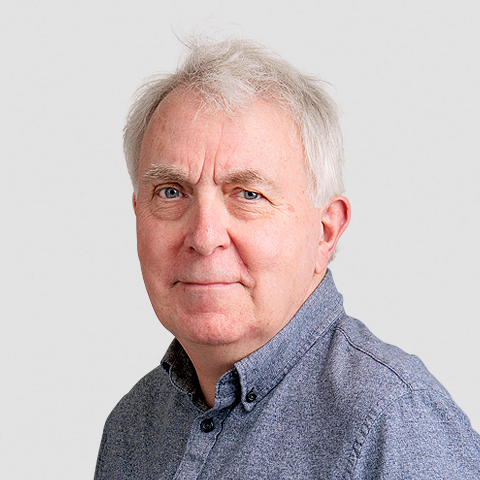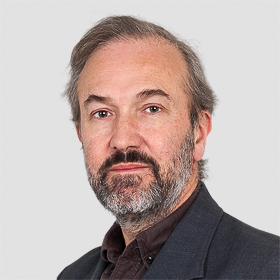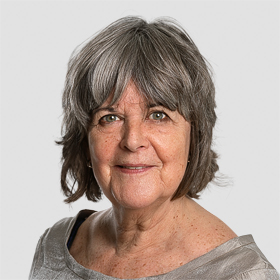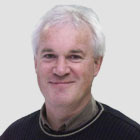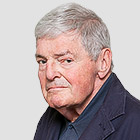1 Environment
The world is warming, the seas are rising and the ice caps are melting. Nothing new there. However, one key feature makes 2015 special when it comes to assessing the state of the planet. In winter, delegates will gather in Paris for talks organised by the Intergovernmental Panel on Climate Change. Most experts believe these talks represent our last chance to reach a binding international deal to ensure carbon emissions are curbed and global temperatures do not increase a catastrophic 2C above pre-industrial levels in the near future. To achieve this goal, rich countries will have to provide about $100bn a year to help poor nations deal with the changes that lie ahead while also agreeing to tight, binding cuts in the greenhouse gas outputs from factories and cars. Most analysts believe this will be an arduous task, to say the least. Robin McKie, science editor
2 Fashion
The big beauty trend of 2015 is a cinch to pull off: no makeup. Most of the recent catwalk shows played with the idea. There were fake freckles on models’ faces at Oscar de la Renta and Preen (created using MAC’s Penultimate Brow Marker), bitten-looking lips at Topshop Unique and an absolute minimum of makeup at Dior and Chanel. But Marc Jacobs took the trend to its logical conclusion and sent models down the catwalk with no makeup. Makeup artist François Nars dabbed on a bit of moisturiser (Nars Skin Luminous Moisture Cream) and away they went. A bold move for Jacobs, who launched his own makeup brand last year. Don’t worry, though: the models all wore a limited edition burgundy Marc Jacobs nail varnish on their toes, so you don’t have to throw out your makeup bag just yet. Alice Fisher
3 Science
Physicists will be watching the Large Hadron Collider in Geneva in March when the particle smasher is set to return to action after a two-year closedown. Having turned it off and then turned it on again, scientists will be hoping the great device – which was used to discover the Higgs boson in 2013 – will be restored to even greater power. Its beams of protons were smashed into each other at joint energies of 8 trillion electron volts (TeV) when the device closed for its upgrade. After its reboot, it should be possible to create collisions of up to 13 TeV. At this level, it is expected the LHC – a 27km tunnel under the Jura mountains – will create a host of new particles that will help scientists at Cern unravel more of the mysteries of the structure of matter and the laws that govern the sub-atomic world. Robin McKie
4 Architecture
Inigo Jones and Rubens at the Banqueting House; Basil Spence and Graham Sutherland at Coventry Cathedral: now a new chapter is being written in the history of British architect-artist collaborations. Architecture firm FAT and Grayson Perry have teamed up to create A House for Essex for Alain de Botton’s Living Architecture. It is a Teutonic-looking object in green, white and gold, a Hansel-and-Gretel house for grown-ups that marches in the opposite direction to the modern assumption that the best response to a scenic location is to create big windows and lots of glass balustrades. As with all Living Architecture houses, it will be available for renting from, we’re promised, spring. It is the last hurrah of FAT, a practice which for two decades made an art out of opposing received wisdom. In 2014 its three protagonists, in the best traditions of boy bands, split up. Rowan Moore, architecture critic
5 Music
In years to come, people may sniff about Liverpool’s Institute of Performing Arts like they routinely huff about that crucible of pop talent, Croydon’s BRIT school. And it may be the fault of All We Are. Lipa was the hotbed where the burgeoning trio – Norwegian singing bass player Guro Gikling, Brazilian singing guitarist Luis Santos and Irish singing drummer Richard O’Flynn – joined forces to make music they alternately call psychedelic boogie or, more accurately, “the Bee Gees on diazepam”. Three-part falsetto harmonies abound, underpinned by laptop ’n’ guitar grooves that are just on the intriguing side of easy on the ear. Fittingly, the trio have toured with Jungle and London Grammar, with which they share musical DNA; the hotly tipped Years & Years have recently reworked All We Are’s October release I Wear You. All We Are’s own groove should hit a crescendo around early February, when their self-titled debut album of dreamy disco is due out on Double Six/Domino alongside their newest single, Keep Me Alive; there’s a headline tour in March. Kitty Empire, pop critic
6 Anniversaries
For the Duke of Wellington it was a “damned near-run thing”. For the chancellor of the exchequer, George Osborne, it was “a great victory of coalition forces over a discredited former regime that had impoverished millions”. And for the Prussian historian Julius Pflugk-Hartung, it was “a victory of Germanic strength over French rascality”. Either way, the 200th anniversary of the Battle of Waterloo deserves our full attention in 2015. It was a world-historic moment: the culmination of a campaign that solidified a sense of British identity, allowed for the expansion of the empire with the removal of French obstruction, and cemented the Anglo-German special relationship. And if we on the left might rue the loss of Napoleon’s more progressive instincts, we can instead celebrate a truly European victory. One former field marshal has described the combination of British, Prussian, Dutch and Belgian forces at Waterloo as “the first Nato operation”. What is more, no one was really in the mood to commemorate the anniversary in 1915. Tristram Hunt, shadow education secretary
7 Religion
The big global religious story will be the continuation of last year’s titanic struggle for the soul of the Catholic church between Pope Francis and the Vatican. I don’t know where you should put your bets. If Francis wins, he and his reforming party will change the interpretation of the church’s hard line on divorce and remarriage. The words will remain, of course, more sacred than ever, but in practice divorced and remarried Catholics will be admitted to communion and their present marriages treated as valid and in need of nurturing. If he loses, the church will maintain its logically perfect but wholly unworkable and dishonest theory of sexuality. The crucial battle will come in October, when bishops from around the world meet in the Vatican for a “synod on the family”. This the second of a pair. The latitude given to liberals to make their case in 2013 so shocked conservatives that some came close to accusing the pope of heresy. Whichever way the decision goes this time, the losing side will be convinced that the winners have betrayed the gospel. Andrew Brown
8 Theatre
Benedict Cumberbatch in Hamlet has become the fastest-selling ticket in London theatre history. A year before opening night all seats were gone. Yet enthusiasts need not despair; 100 tickets for each performance will go on sale for £10. Cumberbatch’s career is a strong preparation for playing the prince. From Sherlock he can bring intelligence and a clouded personality. His 2011 National Theatre appearance in Frankenstein should equip him to project the mighty range of Shakespeare’s part: on alternate nights he played the creature and his creator. Perhaps his face will also help; he has described it as “weird … somewhere between an otter and something people find vaguely attractive”. He will be directed by Lyndsey Turner, one of the fastest rising names of recent years. Hitherto she has specialised in punchy stagings of new plays, among them Laura Wade’s Posh. Hamlet runs at the Barbican, London EC2, from 5 August to 31 October. Susannah Clapp, theatre critic
9 Foreign affairs
In 2015 the US promise to “degrade and ultimately destroy” Islamic State will be tested against the group’s determination to expand its modern-day “caliphate”. Isis’s attempts to administer areas under its control efficiently appear to be failing. Many areas have only a few hours of electricity or running water a day, food costs are rising and the medical system is broken. There are reports of jihadis trying to shirk fighting. Air strikes by a US-led coalition have slowed the group’s lightning advance and the drop in crude oil prices will hit its own fuel smuggling and the income of regional backers. But Isis is a powerful force, uniting unlikely factions behind a well-funded leadership. Crucifixions and stonings, sexual slavery, as well as the public killings of journalists and aid workers, have cowed enemies. It has a huge arsenal of captured weapons and hundreds of foreign jihadis are still streaming in to join every month. Emma Graham-Harrison, diplomatic editor
10 Space
Tim Peake, 42, will become Britain’s first official astronaut when he flies on a Soyuz spacecraft to the international space station in November. Several British-born men and women have already flown into space, but as privately paid crew of commercial missions or through their US citizenship. By contrast, Peake – a former army helicopter pilot – is an official member of the European Space Agency’s astronaut corps. Peake began ESA’s astronaut basic training course in September 2009 and graduated in November 2010. Peake, who was born in Chichester, West Sussex, will stay on the ISS on a six-month mission which has been named Principia after Isaac Newton’s text on the laws of motion and gravity, Principia Mathematica. Other space highlights will include the US New Horizon probe’s arrival at the dwarf planet Pluto in July. In addition, Europe’s Rosetta spacecraft will continue monitoring comet 67P as it makes its closest approach to the Sun in August when streamers of gas and dust will billow from its surface. Robin McKie
11 Books
At the end of next year, the curtain will start to go up on what will be the biggest book event in recent memory, bigger than a Harry Potter launch, and bigger than the Dickens 200th birthday year. This is the 400th anniversary of the death of our national poet, and the world’s greatest playwright. William Shakespeare died on St George’s day (23 April) 1616, traditionally his birthday, possibly after over-indulging with some literary visitors to Stratford-upon-Avon. Publishers will want to cash in early with this quarter-centenary and the new book lists of next autumn will be replete with Shakespeare celebrations. It’s too soon to pick out the highlights of this bardfest, but there will be biographies, reappraisals, anthologies and all kinds of opportunistic squibs. One thing is certain: the top Shakespeare publishers (Oxford, Penguin, Macmillan) will be competing to extract maximum sales from the Complete Works. And we probably won’t hear much about the great pretenders, Bacon, Oxford, Marlowe etc. Robert McCrum
12 Sport
Rugby union’s eighth World Cup is being trailed as the biggest and the best, which does leave it open to the universal test of newsworthiness: as opposed to what? Everybody loves a financial projection, but so far the real success of the tournament has been the creation of a hostile working environment (as opposed to a genial viewing experience) in which some wonderfully weird things happen. In France 2007, the host nation overloaded on pep and vim and collapsed. As they did again in 2011 – at the same time as England were throwing dwarfs in Queenstown – except that, in a state of outright mutiny, France somehow made it to the final, narrowly losing to New Zealand, who had their own fit of the heebie-jeebies. If the World Cup of 2015 can maintain the momentum of reducing beautiful physical specimens to nervous wrecks, it will truly be the biggest and the best. Eddie Butler
13 On screen
Film
The future of The Interview, in which Seth Rogen and James Franco are sent to assassinate Kim Jong-un, may be in doubt. (At the time of writing, its UK release in February is uncertain.) But one Franco film we can bank on seeing is the factually based I Am Michael. The bleary-eyed actor plays Michael Glatze, who gave up life as a gay activist to become a Christian pastor denouncing homosexuality. It marks the directing debut of Gus Van Sant protege Justin Kelly, who also co-wrote the script based on Benoit Denizet-Lewis’s New York Times Magazine article, My Ex-Gay Friend. Zachary Quinto (aka Spock in the Star Trek reboot) and American Horror Story regular Emma Roberts co-star; a three-way sex scene between Franco, Quinto and Charlie Carver (Desperate Housewives) has generated tabloid headlines. The film premieres at Sundance in January before going on to the Berlin film festival in February and a full release later in the year. Ryan Gilbey, New Statesman film critic
Television
In 2015, TV will be all about pleasing smart, middle-class viewers. Programme-makers have discovered the power of what I call box-set broadcasting: long, sophisticated dramas with Hollywood-grade production values and casts. We find them addictive – and television executives know they’re the best way to our hearts and wallets.
The BBC is limbering up for charter renewal in 2017 by betting the next licence fee on classic drama. Hilary Mantel’s Wolf Hall in January is destined to steal every prize going: Mark Rylance mesmerises as Thomas Cromwell and Damian Lewis is perfect as a young, virile Henry VIII.
Next comes a rash of sumptuous revivals – Lady Chatterley’s Lover with James Morton, The Go-Between with Joanna Vanderham and Cider With Rosie with Samantha Morton – and then another round of Shakespeare, with a two-part Henry VI and Judi Dench starring in Richard III. Watch out, too, for Jimmy McGovern’s Banished with Russell Tovey and MyAnna Buring playing the first convicts forging new lives after transportation to Australia.
Sky isn’t going to let Netflix have it all its own way with the third series of House of Cards scheduled for February. Fortitude is probably the most expensive British drama ever made, with Michael Gambon, Stanley Tucci, Christopher Eccleston and Sofie Gråbøl. It’s an Arctic chiller that is as original and unsettling as Sky hopes it will be addictive. Ben Preston, editor of the Radio Times
14 Tech
One of the big questions technology companies, including Apple, Samsung and Google, are asking is: why would anyone buy a smartwatch? All see fitness as one of the most convincing answers so far. The smartwatch – wrist-worn devices capable of running apps and connecting to the internet, usually via a paired smartphone – is a young category, but health has already emerged as one of its key selling points. Samsung’s Gear 2 and Gear Fit devices are good examples, capable of measuring their wearer’s steps and heart rate, and transmitting that data to a smartphone to provide feedback. Rival models from Sony, LG and Motorola have similar health features. In the spring , they’ll be joined by the Apple Watch, which will track general activity as well as harder workouts, feeding everything back to a health app on the owner’s iPhone. All these companies hope that the appeal of better fitness tracking will encourage people to buy this early generation of smartwatches, with their drawbacks – battery life rarely longer than a day, for example. Stuart Dredge
15 Media
The hope next year: that fewer journalists and their staff are killed in the line of duty. 2014, at the last count, meant 116 dead: in Syria, Iraq, Pakistan, Ukraine and all the usual, desultory suspects. 2015 can only get better. And the devil in the bloody detail is that nobody seems to care very much. Soldiers are flown home for reverent burial. Police officers round the world honour lost comrades. But journalists just disappear, often slain with impunity because no one really cares about catching their murderers.
For the most part, the journalists who die are local men and women – community chroniclers, not international superstars. They are public servants, too. They die trying to inform, to discover the facts that keep freedom alive. Maybe all journalism isn’t like this. Curl lips if you must. But too many brave men and women have died to tell you the truth: and, come 2015, enough is enough. Peter Preston

